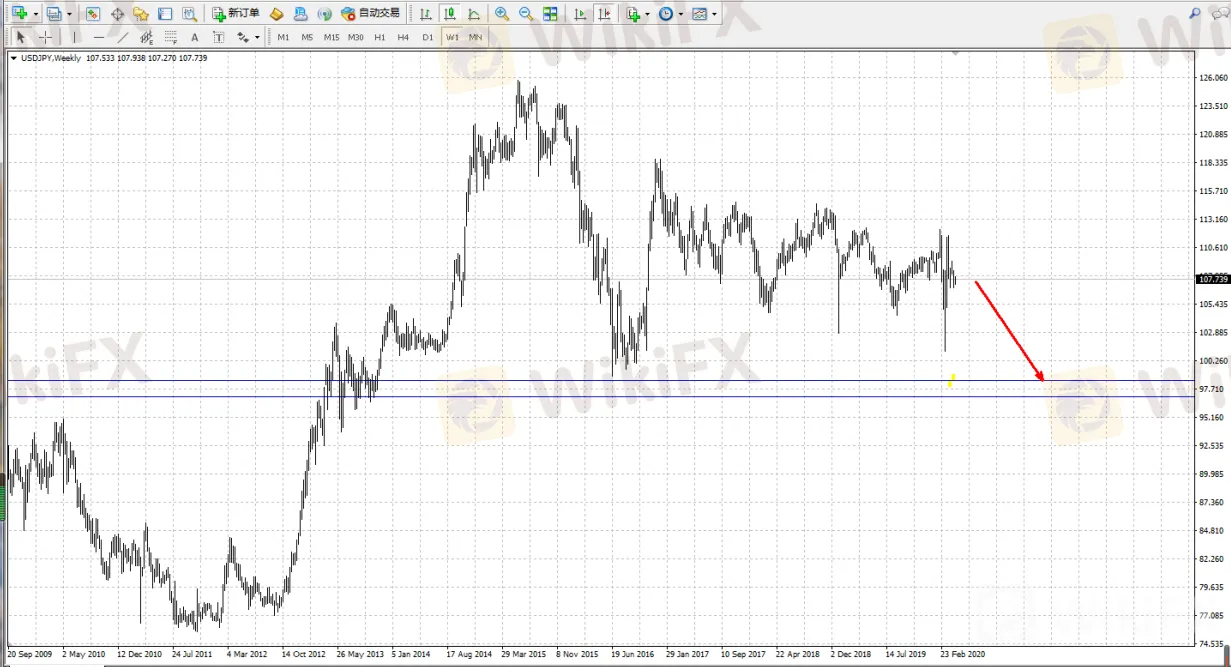简体中文
繁體中文
English
Pусский
日本語
ภาษาไทย
Tiếng Việt
Bahasa Indonesia
Español
हिन्दी
Filippiiniläinen
Français
Deutsch
Português
Türkçe
한국어
العربية
USD/JPY Responded with Various Speeds in Times of Crisis
Abstract:Citibank’s latest forex insight discussed the outlook of USD/JPY and compared the currency pair’s performance against the backdrop of 3 disastrous historical events, namely the Great Hanshin Earthquake on January 17, 1995, the Fukushima Nuclear crisis on March 11, 2011 and the 2020 coronavirus pandemic that triggered Abe's declaration of national emergency on April 16, 2020.
Citibank‘s latest forex insight discussed the outlook of USD/JPY and compared the currency pair’s performance against the backdrop of 3 disastrous historical events, namely the Great Hanshin Earthquake on January 17, 1995, the Fukushima Nuclear crisis on March 11, 2011 and the 2020 coronavirus pandemic that triggered Abe's declaration of national emergency on April 16, 2020. Citibank concluded through the observation that USD/JPY has responded to these times of crisis with different speeds.
After the Hanshin earthquake, the USD/JPY reaction was relatively slow. After about seven weeks, the USD/JPY fell by about 10.5%, followed by further decline.
After the nuclear power plant accident in Fukushima, the response was much quicker, and the USD/JPY fell by about 8.5% in 5 trading days.
After Abe declared Japan s state of emergency, the currency pair dropped in the following 1-7 weeks with an average decline of about 9.5%, which shows that the USD/JPY will fall between 99-97 in the next few weeks (the key support level is below 99-101). Note that 106.92 has twice served as a support, and if the price breach below this level for the third time, the downward trend can be further confirmed.

Disclaimer:
The views in this article only represent the author's personal views, and do not constitute investment advice on this platform. This platform does not guarantee the accuracy, completeness and timeliness of the information in the article, and will not be liable for any loss caused by the use of or reliance on the information in the article.
Read more

The US Retail Industry Data Soared. How would USD and AUD Perform?
The retail sales data released by the United States of May was better than expected, which brought about a rise in US stocks as well as USD, while AUD and NZD fell.

USD/JPY Surged and AUD/NZD Declined Amid US Stock Slump
US stocks closed with the worst performance since the global sell-off in March, with all three major indices in heavy slump. The forex market was also affected, as the safe-haven greenback and yen climbed while Aussie and New Zealand dollars dropped.
WikiFX Broker
Latest News
Saxo & Portuguese Bank Partnership
SEC Fines Broker-Dealers $275K for Incomplete SAR Filings
Elon Musk Warns of Imminent US Bankruptcy | Bitcoin Retreats from $100K
WikiEXPO Global Expert Interview: Advanced Practices and Insights in Financial Regulation
Justin Sun Invests $30M in Trump-Backed World Liberty Financial
Kraken Closes NFT Marketplace Amid New Product Focus
Robinhood Launches Ethereum Staking with 100% Rewards Match
Lured by False Promises: Malaysian Driver Lost RM218K to an Investment Scam
FTX Sets March 2025 Timeline for Creditor Payouts: What It Means for Investors
What is an Economic Calendar? How it works
Currency Calculator



